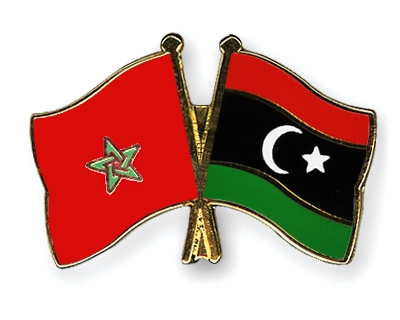By Ashraf Abdul-Wahab.
Tripoli, 13 February, 2014:
Morocco . . .[restrict]has said that the reason it suddenly introduced visas last week for the three-quarters of a million Libyans who visit the country annually was because of “chaos” in the Libyan passport system. Visas would remain in place, a Moroccan government official said, until was able to sort out the problems.
The change became effective on Monday. At the time, Morocco said it was doing so as a “security precaution”.
The change was triggered after a number of arrivals from Libya were found to have fake Libyan passports, a Moroccan government has said.
“Around 285 people were detained with counterfeit Libyan passports in the first month of this year when they arrived at [Casablanca’s] Mohammed V Airport. Most of whom weren’t even Arabs. Some were from Pakistan, Chechnya and Mozambique, others from Afghanistan and Bangladesh,” the Undersecretary of the Moroccan Interior Ministry of Interior told Morocco’s Al Aloula TV.
“We immediately informed the Libyan authorities,” he explained.
“They told us that the old Libyan passport had been replaced with a new digital one. But despite this, a week ago we then arrested more than 20 other people in possession of the new Libyan passport. They were from Algeria, Egypt and Palestine. Indeed, some of them previously been banned from entering Morocco altogether”, he said, hinting that militants were using Libya to try and get into Morocco.
“The Libyan Authorities were informed of this. First they told to us that the newly seized Libyan passports were authentic, then later they reversed their statement and told us that seized passports were in fact counterfeit.
“This chaos over Libyan personal documents forced us to take the decision to impose visas on Libyan nationals before being allowed to enter Morocco,” Elabsi said, expressing clear exasperation with Libya’s response.
The ban would continue, he declared, “until the Libyan authorities impose state control and have sovereign procedures in place in respect of travel documents and are able to put an end to this phenomenon”. It had, he added, had a” negative impact on the security of the Northern African countries”.
Meanwhile, those arrested with fake passport were in custody awaiting expulsion to Libya or elsewhere, he said.
There has been no Libyan response to the Moroccan complaint other than a statement from the Foreign Ministry on Wednesday saying that Libyan businessmen and journalists would not need visas for Morocco if talks with the Moroccan authorities were successful.
There is no indication, however, that the Moroccans intend relaxing the rules for anyone in the present circumstances.
Moroccans have had to have visas for Libya for several years.
We earlier credited the above article to a member of staff and named the the Undersecretary of the Moroccan Interior Ministry as Major-General Khalid Salim Elabsi. In fact the article was based on one from alshouraffa.com and passed by the member of staff to the editorial team for them to see. Unfortunately the article then entered the system. The mistake in wrongly attributing it was made by those who translated and edited it. We apologise to our readers. [/restrict]









